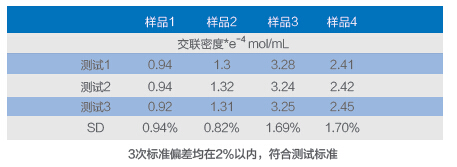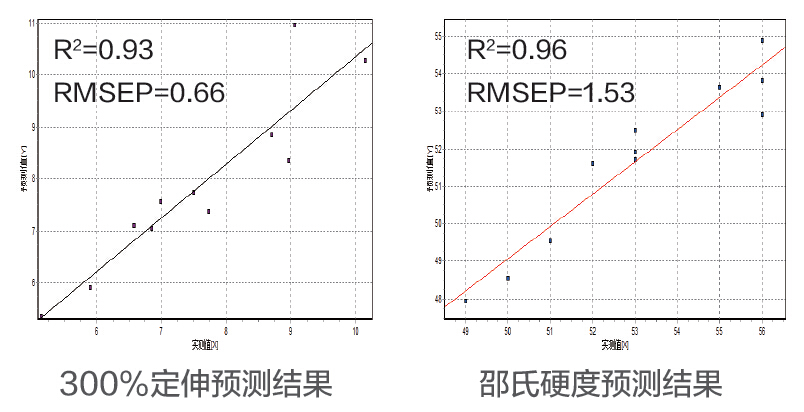Rapid test of crosslink density_NMR
The NMR polymer material detection system provides a comprehensive range of scientific solutions for a wide range of materials, from elastomeric materials such as rubber to membrane materials and nanomaterials in the biological field.
NMR technology not only provides a single detection value, but also provides a full-time, long-term online monitoring for process improvement, process research, etc. without loss, rapid and convenient analysis.
New height of material research
Simple and fast
Easy to set parameters, complete sample testing in minutes
Lossless green
No chemical treatment is required. There is no special requirement for sample morphology. Both solid and liquid samples can be repeatedly tested.
Precise temperature control
Wide temperature range from room temperature to 150 °C, precise temperature control system combined with excellent hardware to provide stable and accurate experimental conditions for scientific research
Powerful application support
Online research Q&A, your research, I am involved in failure problems, and respond quickly to on-site service
Covering a wider range of applications
Rubber elastomers, polymeric materials, aerospace materials, functional film materials, nanocomposites, gels and porous materials
rubber:
Rapid assessment of crosslink density

Compared with the swelling method, the nuclear magnetic method has obvious advantages.
The nuclear magnetic method obtains the chemical and physical crosslink density of rubber by detecting the motion characteristics of the rubber polymer chain, while the chemical method can only detect the chemical crosslink density;
Sample testing can be completed in a few minutes; no chemical treatment is required, green and environmentally friendly; easy to operate, high precision; the same sample can be repeated multiple times and other longitudinal experiments;
Suitable for natural rubber, composite rubber, reclaimed rubber powder and polyolefin materials such as plastics
Quickly predict the mechanical properties of rubber

The nuclear magnetic T2 relaxation reflects the motion characteristics of the cross-linked network segment according to the dipole action of the intermolecular hydrogen proton. When the crosslink density changes (especially physical cross-linking), the molecular chain's motion pattern changes, and the macroscopic representation is the deformation force. Physical properties such as stress-strain change.

The combination of nuclear magnetic resonance technology and chemometrics, rapid prediction of multiple mechanical indicators of rubber, providing an effective rapid detection method for actual production and quality control.
Shenzhen Guang Disen Furniture co.,ltd , https://www.gdisenfurniture.com